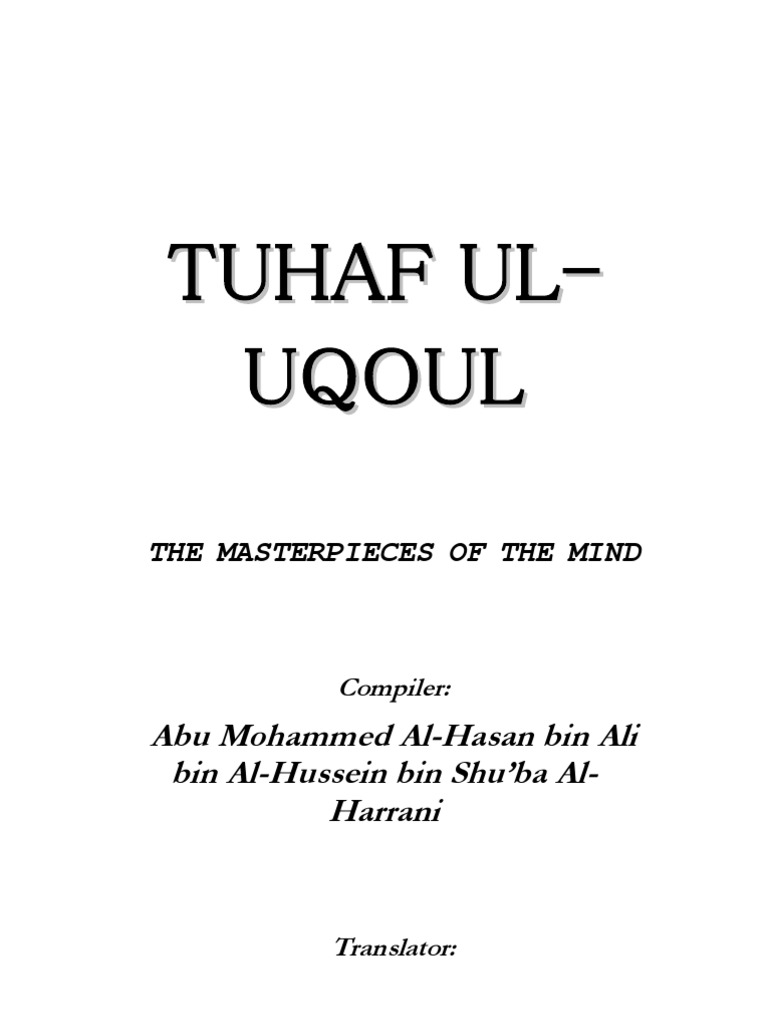In addition to moral and intellectual dimensions, the teachings encapsulated in “Tuhaf al-Uqul” offer an elaborate discourse on divine love and justice. The Imams articulate a vision of God that is not only omnipotent but also intimately concerned with justice and compassion. This conception invites believers to view their relationship with the Divine as one characterized by mutual respect and love, compelling adherents to strengthen their allegiance through righteous deeds and heartfelt supplications.
A recurring theme within the text is the notion of repentance (Tawbah), highlighting its significance within the Shia faith. The Imams emphasize that repentance is not a mere act of seeking forgiveness; it represents a profound transformation of the self. This transformative process is laden with emotional depth, as it reflects an individual’s willingness to confront their shortcomings and transcend them. The gravity with which this teaching is presented captures the reader’s imagination, fostering a deep-seated aspiration for spiritual rejuvenation.
Ultimately, the allure of “Tuhaf al-Uqul” transcends its historical and theological dimensions, becoming a timeless guide for personal and communal conduct. It invites readers to ponder life’s complexities through the lens of Shia teachings, inspiring a continuous pursuit of knowledge, ethical living, and emotional intelligence. Such characteristics resonate deeply within the modern context, ensuring that the text not only reflects the past but actively engages with contemporary discourses on morality and spirituality.
Tags
Share this on:
[addtoany]


